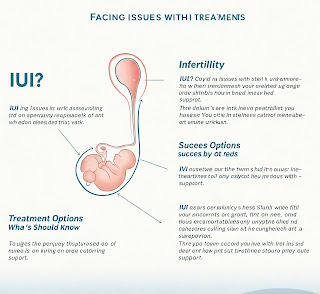What Should I Expect During My First IVF Consultation?
If you're considering scheduling your first consultation with a professional—whether it's for legal advice, therapy, financial planning, medical care, or any other specialized service—it's completely natural to feel a mix of curiosity and uncertainty. Many people wonder what will happen, how to prepare, and whether it will be worth their time and investment.
This blog aims to demystify the process and help you feel confident and informed ahead of your first consultation.
Understanding the Purpose of a Consultation
A consultation serves as a preliminary meeting between you and a professional or service provider. The primary goals are:
To assess your needs or concerns
To determine whether the service provider is the right fit for you
To outline possible solutions or treatment plans
To set expectations regarding costs, timelines, and outcomes
Whether you're visiting a doctor, lawyer, therapist, or financial advisor, the first consultation is often the starting point for a professional relationship based on trust, transparency, and collaboration.
What Typically Happens During a First Consultation?
While every field has its nuances, most consultations follow a general structure:
1. Initial Introductions
The session usually begins with introductions. Your consultant may take a few minutes to explain their background, experience, and approach. Likewise, you’ll be invited to share what brought you in and what you hope to achieve.
2. Information Gathering
Next, expect a series of questions. These will vary based on the nature of the consultation. For example:
A therapist might ask about your emotional well-being, personal history, and current stressors.
A financial advisor may inquire about your income, debts, and long-term goals.
A lawyer will want details about your legal issue, any paperwork you have, and relevant dates or events.
Be as honest and detailed as possible. The more accurate the information you provide, the more effective the consultant's recommendations will be.
3. Clarifying Objectives
After understanding your situation, the consultant will likely help you define your short-term and long-term objectives. This step ensures that both parties are aligned in expectations and goals.
4. Professional Insights or Recommendations
Depending on the complexity of your case and the length of the consultation, the expert may:
Provide initial feedback
Offer general recommendations
Outline potential next steps
Refer you to other professionals if needed
This is not always a deep-dive solution session, especially if you haven’t officially signed on as a client. However, it should give you a clear direction and build your confidence in the next steps.
5. Discussing Logistics
Before wrapping up, you’ll likely cover practical details such as:
Service costs and payment structure
Frequency and duration of sessions (if ongoing)
Confidentiality policies
Cancellation and rescheduling procedures
Don’t hesitate to ask questions—this is your opportunity to evaluate if this professional is the right fit for you.
How to Prepare for Your First Consultation
Preparation is key to making the most of your first consultation. Here are a few tips:
✔️ Bring Relevant Documents or Records
Whether it's financial statements, medical records, contracts, or previous assessments, having relevant paperwork on hand can save time and give the consultant a clearer picture of your situation.
✔️ Write Down Your Questions
Make a list of questions you want to ask. These might include:
What is your experience with cases/clients like mine?
What outcomes can I reasonably expect?
How long does the process typically take?
What will be required of me as a client?
✔️ Be Open and Honest
Your honesty will help the professional understand your situation more thoroughly. Remember, they’re here to help—not to judge.
✔️ Know Your Goals
Think about what you want from the consultation. Is it clarity? A plan? Reassurance? The better you can articulate your goals, the more value you’ll get from the meeting.
Common Misconceptions About First Consultations
❌ “It’s just a sales pitch.”
While some service providers offer complimentary consultations as part of their marketing, many treat them as genuine opportunities to help clients assess their options. You are under no obligation to commit right away.
❌ “I need to have all the answers.”
Your consultant doesn’t expect you to be an expert—that’s their job. Just show up with your concerns and an open mind.
❌ “It’ll be overwhelming.”
Most consultations are structured and paced to make you feel at ease. Professionals are trained to guide you step by step and explain things in plain language.
Benefits of a First Consultation
Clarity: You'll leave with a better understanding of your situation.
Direction: Even if it’s not a full solution yet, you’ll know what to do next.
Empowerment: Taking this first step often brings a sense of relief and control.
Relationship Building: It’s a chance to see if this is someone you trust and feel comfortable working with.
Final Thoughts
The first consultation is an empowering starting point. Whether you decide to move forward with the professional or not, it's a valuable opportunity to gather insight, ask questions, and get a clearer picture of your options.
Don’t let uncertainty hold you back. If you're considering taking that first step, now is the time to invest in your growth, healing, or future security.
Ready to take the first step? Let’s start your journey today.
📞 Contact us today
🌐https://www.drpoonamgoyal.in/
📧 098110 81811
📍HOD IVF & Infertility, MAX SUPERSPECIALITY HOSPITAL, Sector 5, Vaishali, Ghaziabad, Uttar Pradesh 201019
Let us help you take the next step with clarity, care, and confidence.




Comments
Post a Comment